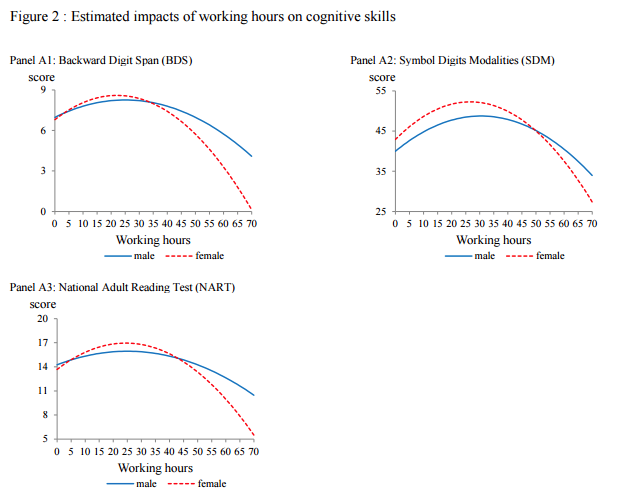Why scientists think we should be working three-day weeks
The over-40s are at their best if they work fewer than 25 hours a week, according to new research.
The study, published by the University of Melbourne, looked at the cognitive ability of Australians aged over 40. For up to 25 hours a week, cognitive function was improved by working more. However, after that increasing working hours begins to have a negative impact on cognition.
“In the middle and older age, working part-time could be effective in maintaining cognitive ability,” conclude the authors. “Our study highlights that too much work can have adverse effects on cognitive functioning.”
The researchers used the Household, Income and Labour Dynamics in Australia (HILDA) Survey and three measures of cognitive ability. Their results are outlined in the chart below.

The charts highlight the peak in cognitive skills at around the 25-hour mark – for both men and women. This initially declines gradually, until a steep drop as working hours become much longer.
However, the study did only assess over-40s, so whether they are any different from the rest of the population is not clear. Equally, the gradual decline indicates that longer working hours up to a point are possible, without significant impact on performance.
Geraint Johnes, professor of economics at Lancaster University is quoted by theBBC as saying: “The research looks only at over-40s, and so cannot make the claim that over-40s are different from any other workers.”
An ageing population
The results are potentially significant as the global population ages and people work later in life. The authors highlight that for those over the age of 40, working part-time – for example three days a week – could have cognitive benefits, both for workers and business.
Although limited in its scope, the study does offer a potential solution to making the most of an ageing workforce.


